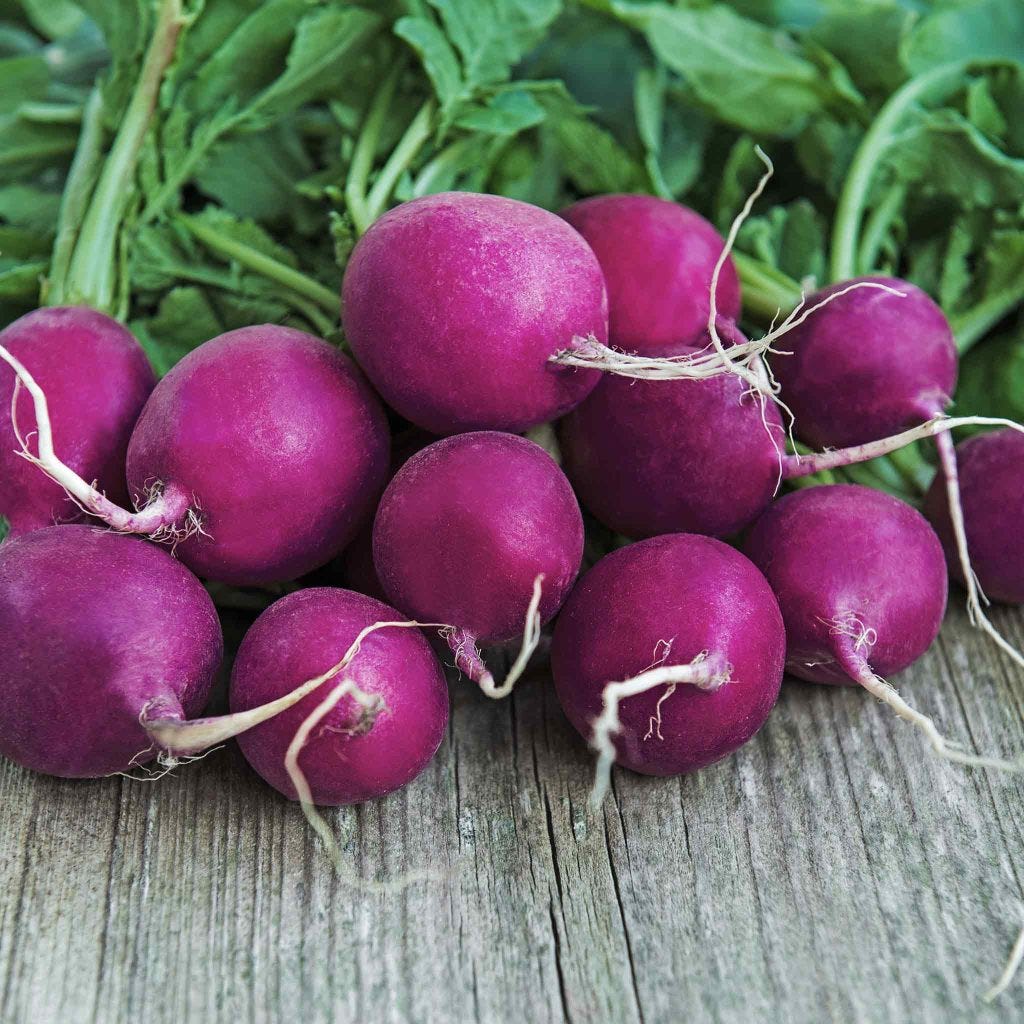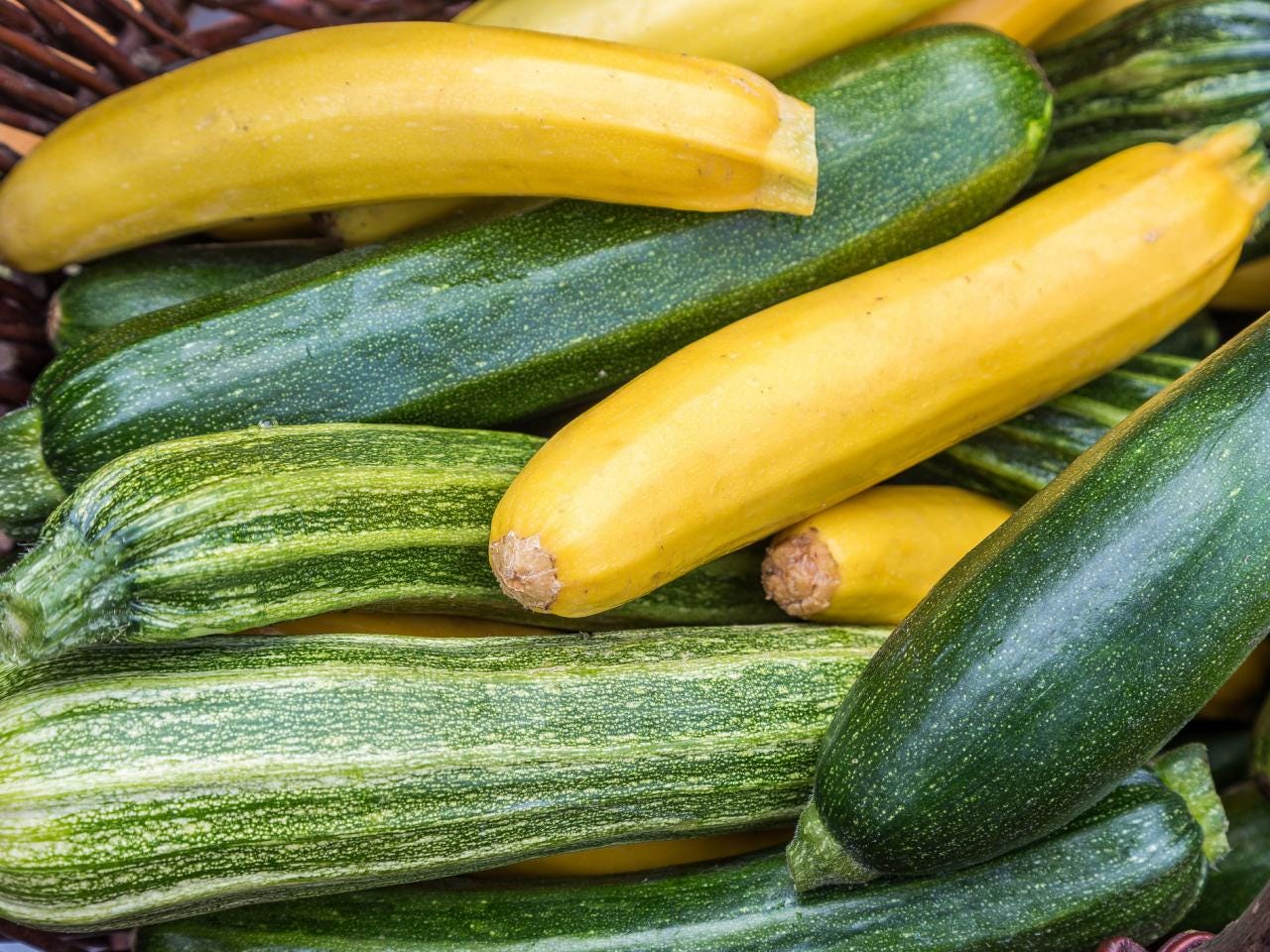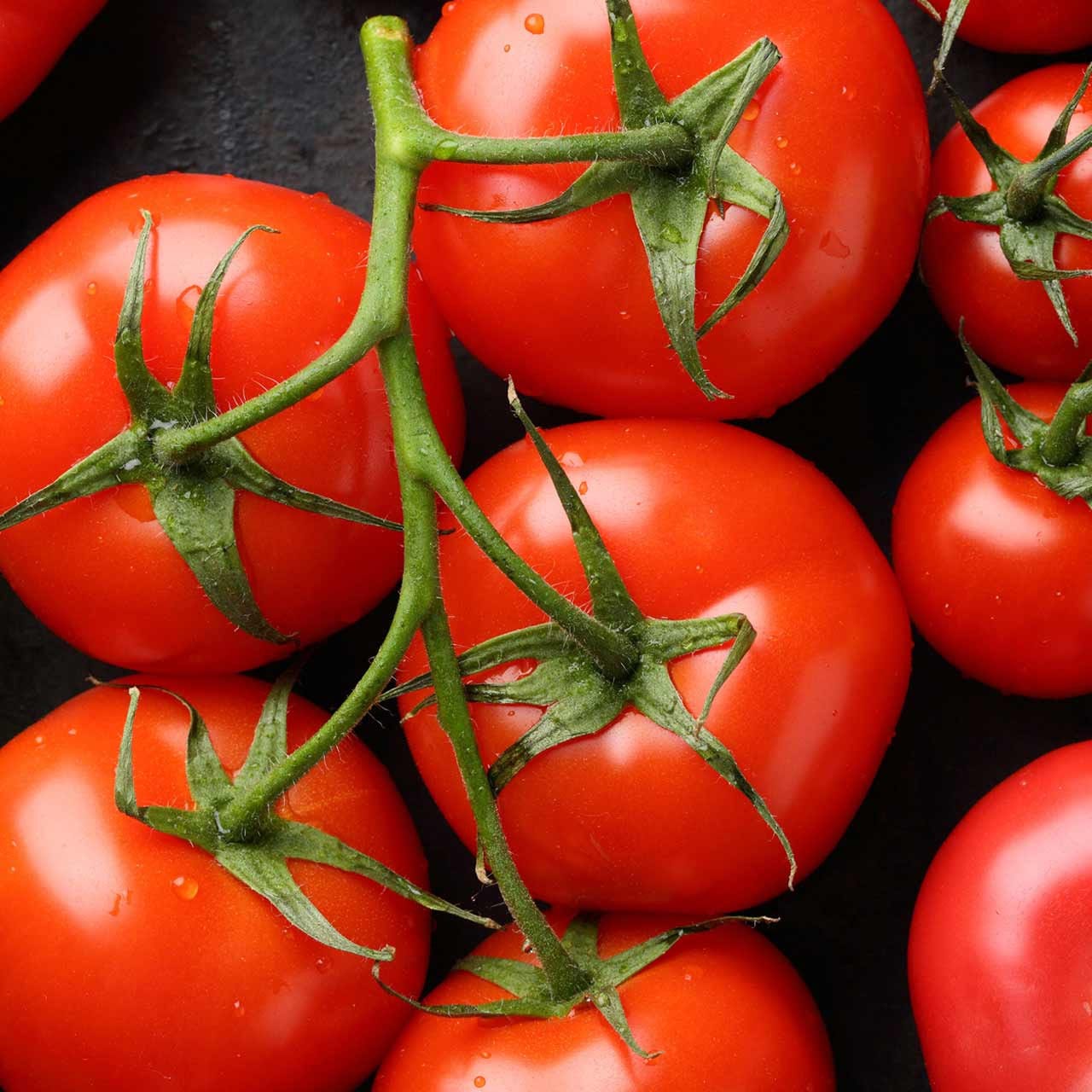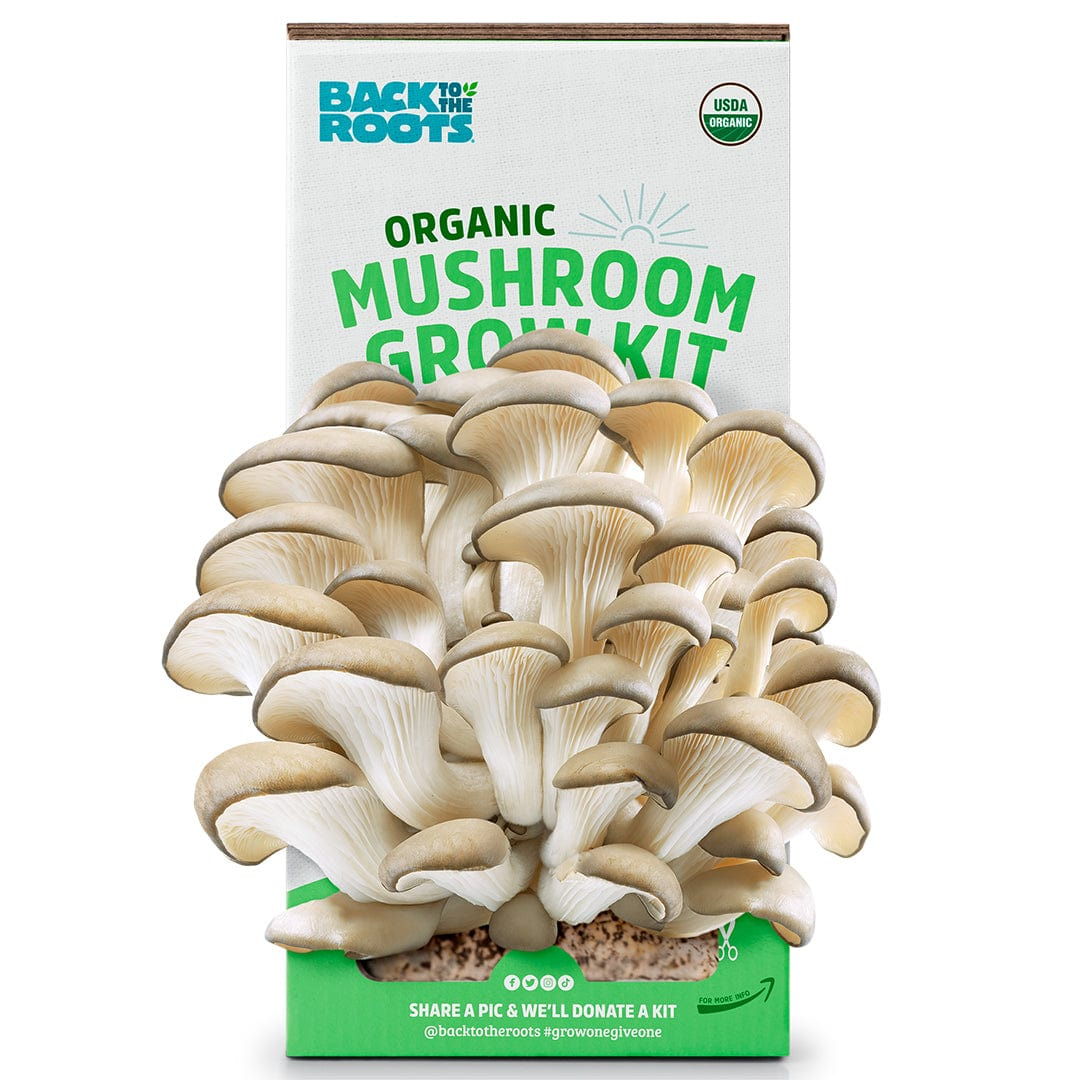Part 6: Speedy Veggies
A recap of the fastest growing varieties. Also, reasons to consider hybrid varieties.
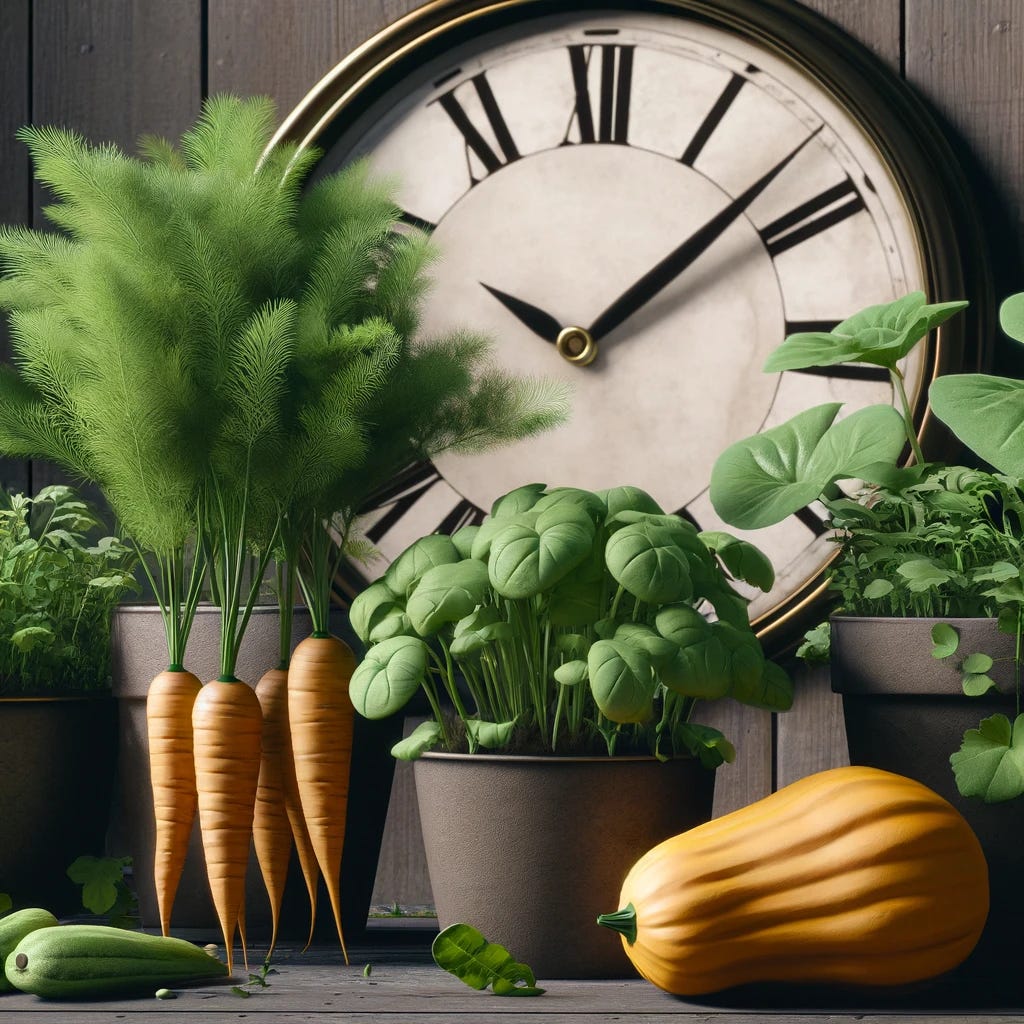
Lately I’ve been pondering longer-term food strategies. If some epic disaster happened with a months-long recovery timeline and I had used up most of my non-perishable items, what would I do for food?
Possible solution: grow more, ideally as quickly as possible.
Which led me to researching the fastest growing vegetable varieties. Here’s a recap.
Greens
I’ve generally tried to focus on lower-oxalate greens, with the exception of spinach, which is high in oxalates but also high in iron. I’ve also tried to aim for a variety of nutrients.
Spinach: Space (hybrid)
25 days to maturity
Nutrition: Vitamins A, C, K, iron, folate, and potassium (source)
Oxalates: high (pair with high-calcium food)
Organic seed retailers: Johnny’s, High Mowing, Fedco
Mizuna
18 days for baby leaves
40 days to maturity
Nutrition: Vitamins A, C, K-1, beta carotene, fiber, as well as numerous minerals (source)
Oxalates: Very low
Organic seed retailers: Johnny’s, Seed Savers
Arugula: Esmee
21 days for baby leaves
40 days to maturity
Nutrition: Vitamins A, C, K, beta carotene, calcium, iron, copper, zinc, & magnesium (source)
Oxalates: Very low
Organic seed retailers: Johnny’s, High Mowing, Restoration
Mustard: Red Giant
21 days for baby leaves
45 days to maturity
Nutrition: Vitamins A, C, K, beta carotene, potassium, magnesium, and thiamine (vitamin B1) (source)
Oxalates: Medium (pair with a high-calcium food)
Organic seed retailers: Johnny’s, High Mowing, Hudson Valley
Tatsoi
25 days for baby leaves
45 days to maturity
Nutrition: Vitamins A, C, K, beta carotene, folate, potassium, very high in calcium (2x compared to many cow milks) (source)
Oxalates: Very low
Organic seed retailers: Johnny’s, Seed Savers
Radishes
Nutrition: Vitamins C, B6, riboflavin, niacin, and thiamine
Sparkler
25 days to maturity
Organic seed retailers: Sow True Seed, Ferry Morse
Purple Plum
25 days to maturity
Organic seed retailers: Sow True Seed, High Mowing, Fedco
Carrots
Carrots usually average 70-80 days to grow to maturity. All of the varieties below are 55-65 days. Can also harvest prior to maturity for baby carrots.
Nutrition: Vitamins B6, K1, beta carotene, biotin, potassium.
Napoli (hybrid)
YaYa (hybrid)
Lunar White (these are actually white)
60 days to maturity
Organic seed retailers: Annie’s, Seed Savers (lists maturity as 75 days)
Nantes
65 days to maturity
Organic seed retailers: High Mowing, Ferry Morse, Seed Savers, Sow True Seed
Zucchini Squash
Zucchini are pretty speedy in general, with an average 45-60 days to harvest. There’s one notable hybrid variety that’s extra-fast:
Goldini II Yellow (hybrid)
35-40 days to maturity
Nutrition: Vitamin A, multiple beta carotenoids, potassium, folate (source)
One other note: I also saw mentions of the Bossa Nova hybrid variety as fast growing. This variety was developed by Monsanto however, and I couldn’t find any organic seeds, so I don’t really feel comfortable recommending it.
Tomatoes
Tomatoes usually average 60-100 days to harvest.
Nutrition: Decent source of potassium, Vitamin A, beta carotene, and very high source of lycopene (has properties that promote cardiac health and prevent cancer).
Sub Arctic Plenty (hybrid)
50-60 days to maturity
Determinate
Organic retailers: Garden Hoard, Tim’s Tomatoes on Etsy
Glacier
55 days to maturity
Determinate
Organic retailers: Johnny’s, Fedco, Hudson Valley
Note: According to the description on the Fedco page, Glacier tomatoes outperform Sub Arctic Plenty tomatoes when it comes to taste.
Advantages of Hybrids
You’ve probably noted that many of the fast growing veggie varieties are hybrids. In addition to speed, hybrids often have higher pest and disease resistance, also higher heat/cold tolerance. For all of these reasons, they’re a good option to consider when planning for higher stress food growing scenarios.
Here’s a recap of the differences between open pollinated vs. hybrid varieties:
Best Varieties for Seed Saving
If you’re interested in speedy veggies that will *also* work for seed saving, you may want stay away from hybrids and instead consider open pollinated and heirloom seeds. Seeds from hybrid plants will regrow, but as noted in this video, “It's a little like Forrest Gump's box of chocolates -- you never know what you're going to get.”
Mushrooms
Not covered here as I have no experience growing them, but they’re super fast to grow (1-2 weeks) and a good source of potassium, phosphorus, folate, and choline.
I might have to try this:
A Few Additional Tips to Speed Up Growth Rates (all veggies)
Heating Mats
Great for colder climate greenhouses and growing indoors.
A couple options:
Humidity Domes
AC Infinity’s humidity dome seems to be made of higher quality materials compared to others that use flimsy plastic. It also has a height extender for taller seedlings.
Bootstrap Farmer has taller 5” humidity domes for more mature plants.
That’s the info dump for now. Will update as I continue geeking out on this. :)
—
Previously on The Thoughtful Prepper...



